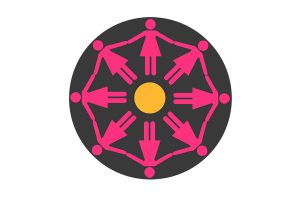Project Sponsor
 Dundee International Women’s Centre (DIWC) seeks to engage, educate and empower women from diverse ethnic and cultural backgrounds, to help them achieve their personal goals. We provide educational, recreational and social activities, as well as employment training, information and advice services for disadvantaged and/or excluded women from over eighty countries.
Dundee International Women’s Centre (DIWC) seeks to engage, educate and empower women from diverse ethnic and cultural backgrounds, to help them achieve their personal goals. We provide educational, recreational and social activities, as well as employment training, information and advice services for disadvantaged and/or excluded women from over eighty countries.
DIWC works in partnership with many organisations to promote the personal development of women by encouraging active participation, leadership and citizenship in society. We help women from all different backgrounds to find a better life. Some women are from very disadvantaged circumstances and have had no education at all. Other women come to us having gained distinguished qualifications in their home countries, but need to start again in the UK and learn English.
We support women to grow in confidence and achieve their personal goals. We don’t do stereotypes and we don’t make assumptions. We see every woman as an individual, full of hopes and dreams!
The Challenge
Cycling benefits physical and mental wellbeing, is good for the environment and a free method of transportation. In September DIWC started its 2nd year of cycling classes run by a trained, dedicated cycle leader with 2 learners. We have 9 hybrid bikes, we have jackets, hi vis vests and helmets. Numbers can vary between 0 and 8, but remain low all year. Learners want to get fitter, and want to learn how to ride a bike. To our learners this means starting with little steps: Sitting on a bike, balance on a bike. Many learners are put off by Scottish weather and see cycling not as a means of transport, but as a sunny day activity only. Many learners lack confidence. Many learners want to be able to sit and ride on a bike but not to progress with cycling as a skill. Our learners say they want to cycle, and those who have learned with us report feelings of increased confidence and independence.
How do we increase numbers for our cycling class?
How do we increase commitment and attendance to help more BME women learn how to ride a bike?
A key issue is how do we effectively address the cultural challenges our potential learners face? Despite the high profile win of the Iranian Junior Women’s Cycle Team, some cultural inhibitions and taboos surround cycling as a women’s sport for many Muslim countries. Tight clothes and being seen out cycling in public places are the barriers faced by some of our learners. Fatima, our cycle leader, says her own father would not let her ride a bike as it was not a respectable thing for a woman to do!
How do we do increase class attendance and commitment whilst always maintaining good cultural awareness and promoting this cultural awareness to others?